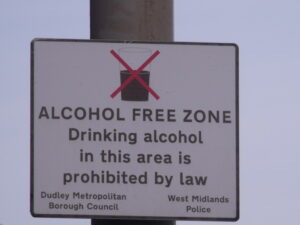Chapter 7: Deviant Behaviors Outside of U.S.: Diagnosis through Rehabilitation
According to the 2022 INTERPOL Global Crime Trend Summary Report Global Crime Trend Summary Report EN put together by INTERPOL, the following crimes were notated throughout the world and broken into the following categories based on severity:
- Illicit Trafficking : involves selling natural and synthetic drugs human/migrant trafficking, political instability, inflation,
climate change causing migration of individuals, smuggling of items & people - Organized Crime: Involving crime groups & criminal networks
- Financial Crime & Corruption: Financial fraud examples include: money laundering, social engineering to perpetrate financial fraud, knowingly enabling corruption, impersonation, and other scams
- Cyber crimes: Hacking, phishing, scams, ransomware, & sexual exploitation of children, and terrorism (specifically Jihadist and groups
affiliated with the Islamic State, politically motivated
The global pandemic caused unique situations for deviance; learn more by reading this article: Crime and deviance during the COVID-19 pandemic (2022)
Review each of the hot spots below to learn more about deviancy on different continents and in different countries.
A Global Comparison of Norms and Deviant Behavior
The following list is a comprised of social norms accepted globally, but are illegal within the United States.

- Beheading wife and/or girlfriend due to dishonor
- Sexual assault
- Removal of clitoris
- Multiple wives
- Mob behavior
- Incest is not illegal
- Domestic battery
- Spousal sadism
- Killing couples marrying out of socioeconomic status
- Dress codes for women
- Ban on certain media (books, film, television, phone apps, etc.)
This list is comprised of social norms accepted globally, which are legal within the United States but generally taboo.

- Child brides
- Arranged marriages
- Retribution (such as throwing acid on someone)
- Celebration of menses and womanhood
- Submissive wives
- Homosexuality and lesbianism considered shameful
- Celibacy
- Food restrictions including but not limited to refusal or acceptance of particular proteins based on religious or cultural norms
- Alcohol consumption for minors
- Abortion
References
Australian Bureau of Statistics (2023). Crime and justice. Retrieved on September 28, 2023 from https://www.abs.gov.au/statistics/people/crime-and-justice
INTERPOL (2022). Annual report. Retrieved on September 28, 2023 from https://www.google.com/url?sa=t&rct=j&q=&esrc=s&source=web&cd=&cad=rja&uact=8&ved=2ahUKEwiYz6ulvs2BAxWfLDQIHbLrBa4QFnoECA0QAw&url=https%3A%2F%2Fwww.interpol.int%2Fcontent%2Fdownload%2F19843%2Ffile%2FINTERPOL%2520%2520Annual%2520Report%25202022_EN.pdf&usg=AOvVaw3I9EYeVpS63wniuDrTimfH&opi=89978449
Interpol (2022). Global clime trend summary report. Retrieved on September 28, 2023 from https://www.interpol.int/en/How-we-work/Criminal-intelligence-analysis2/Our-analysis-reports
United Nations Office on Drugs and Crime (2022). UNODC Strategic vision for Latin America and the Caribbean. Retrieved on September 28, 2023 from https://www.unodc.org/res/strategy/STRATEGIC_VISION_LATIN_AMERICA_AND_THE_CARIBBEAN_2022_2025_ENE17_EDsigned.pdf

